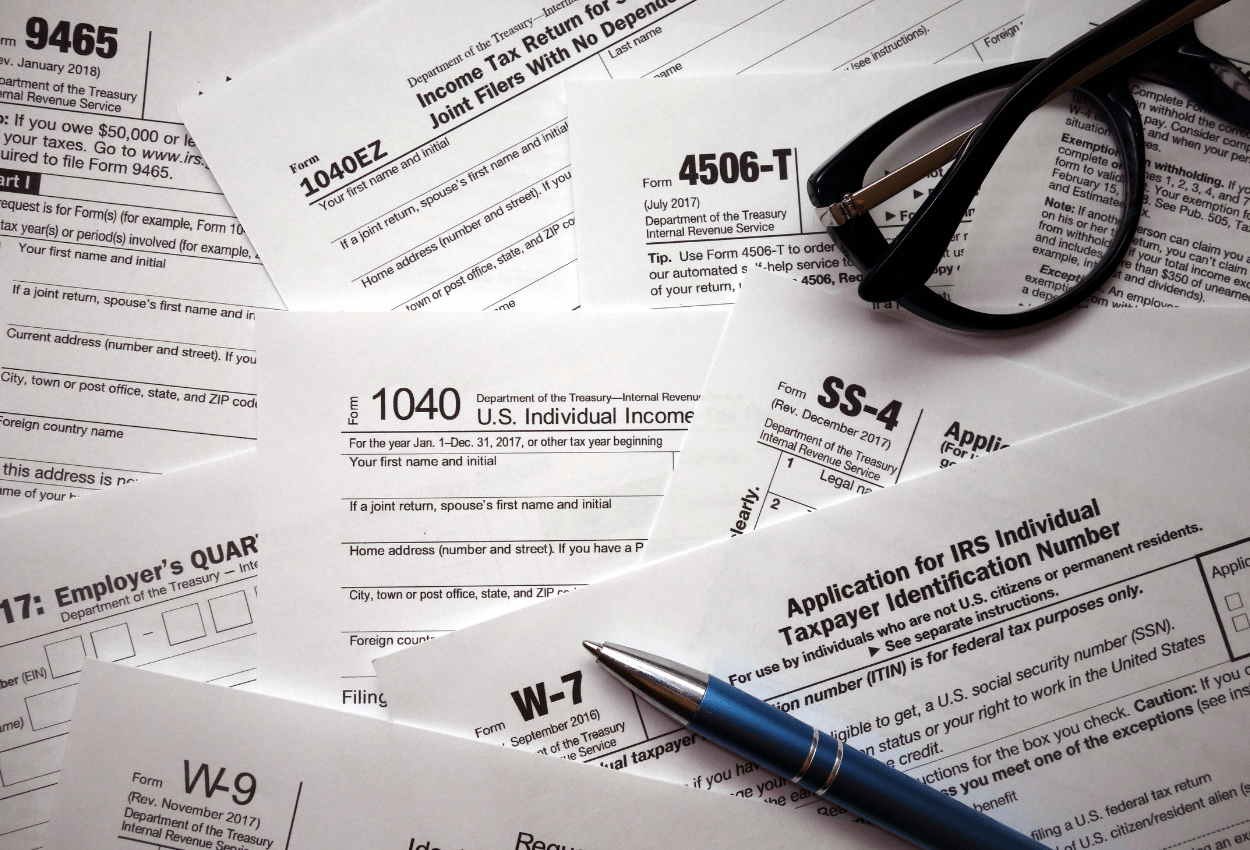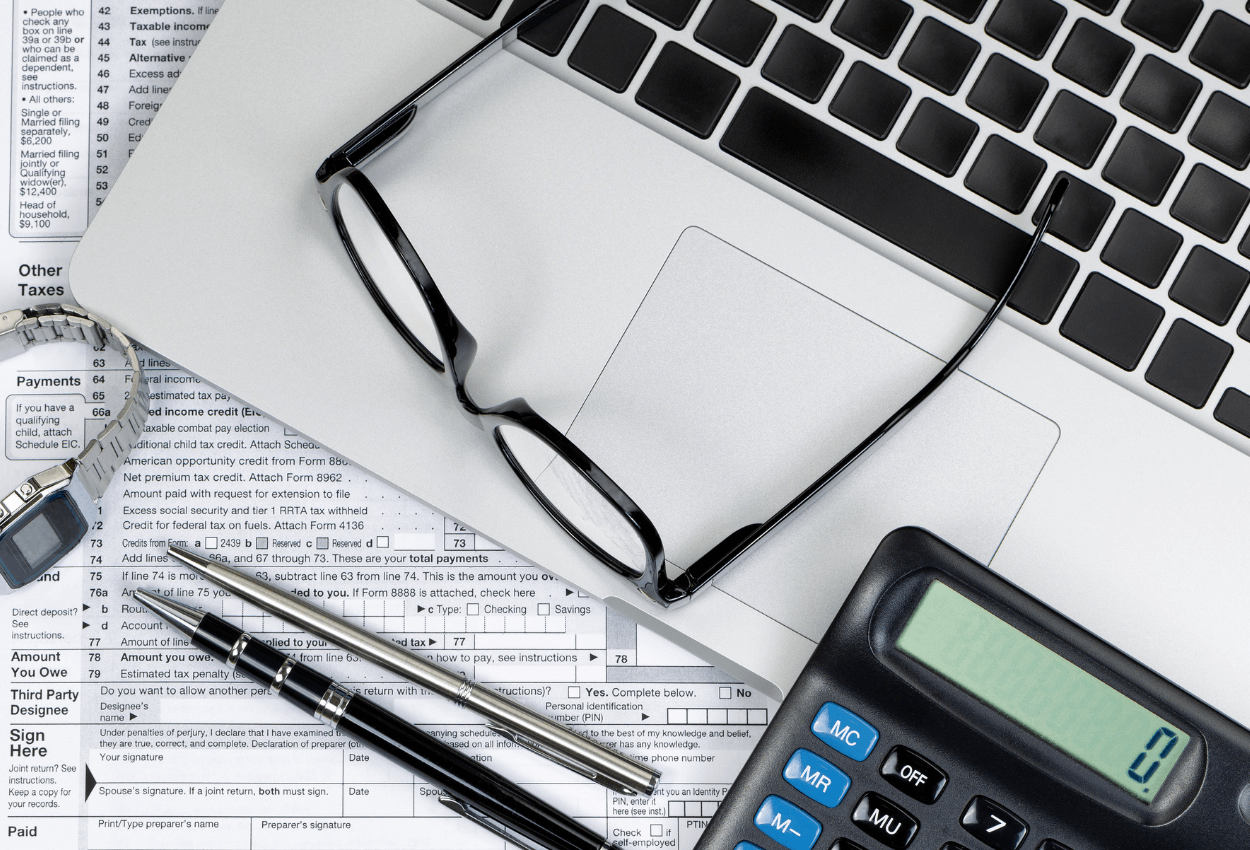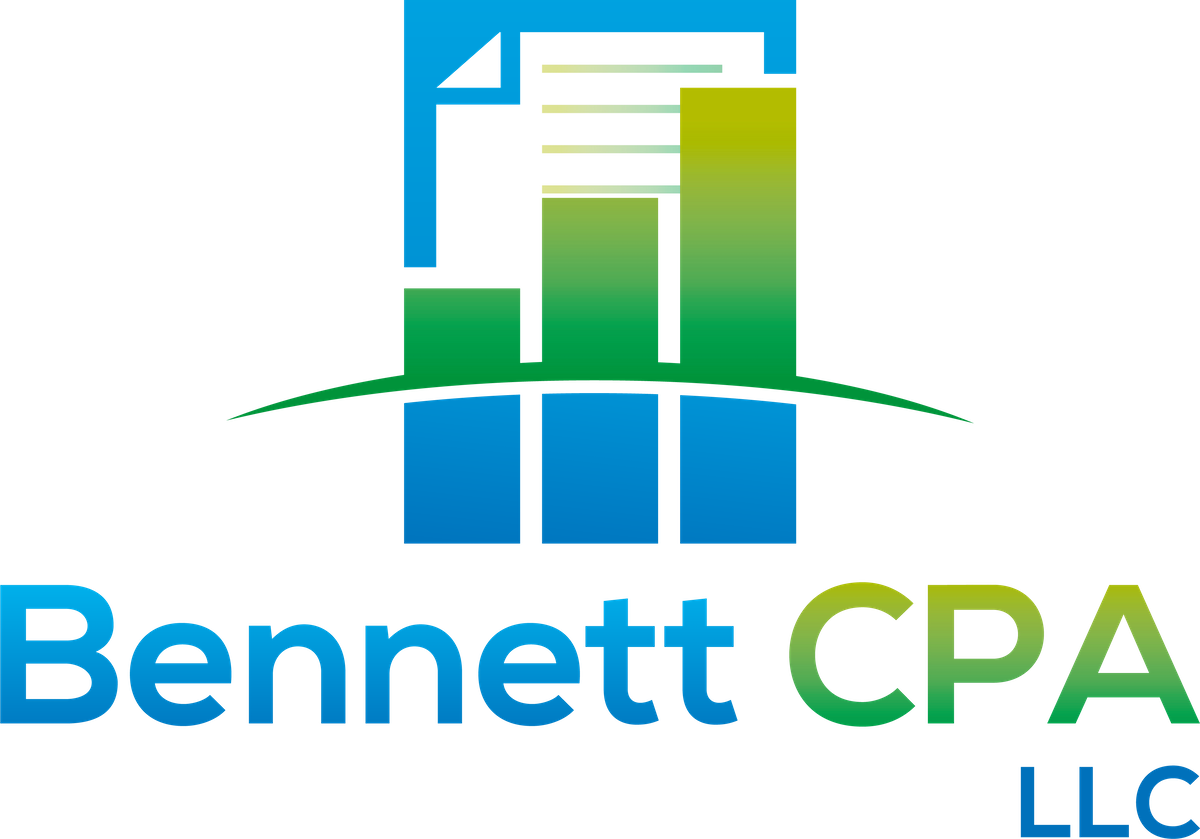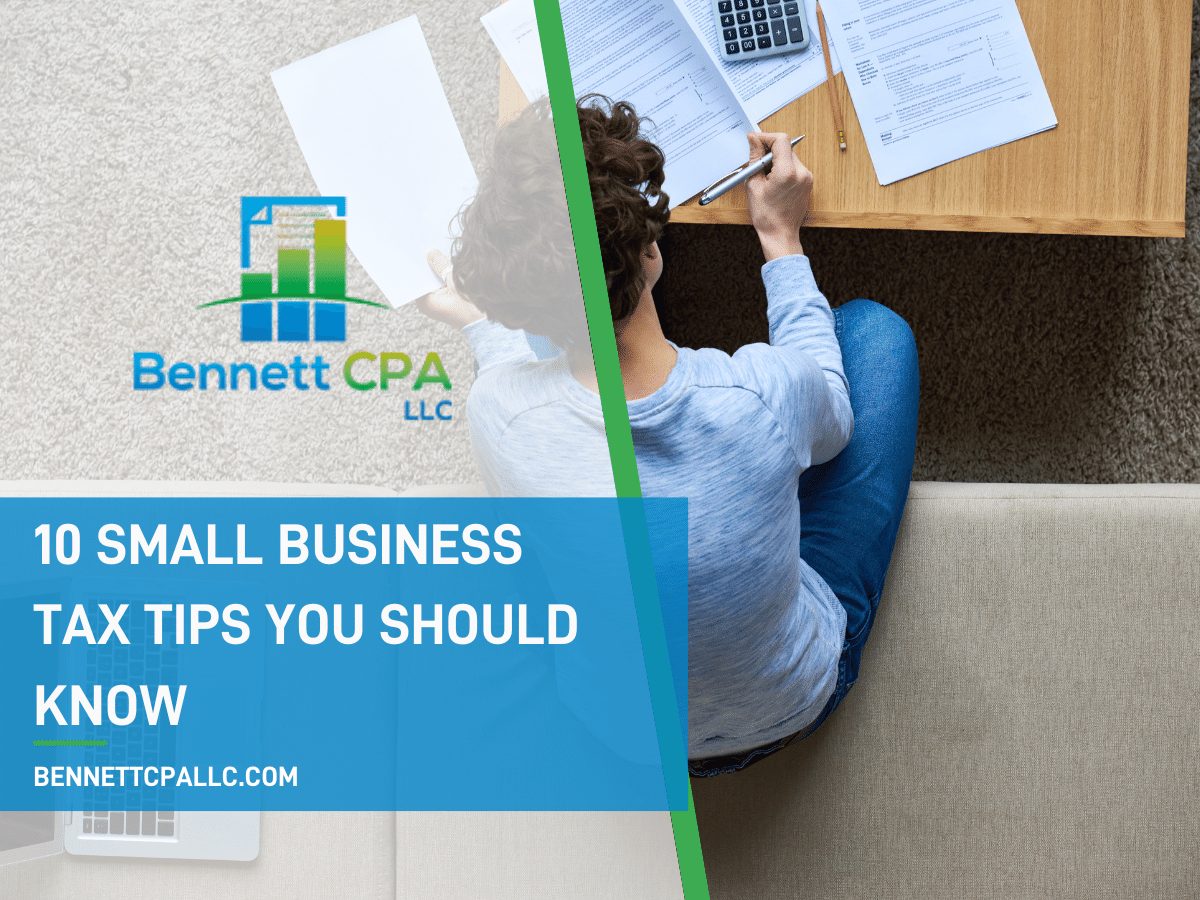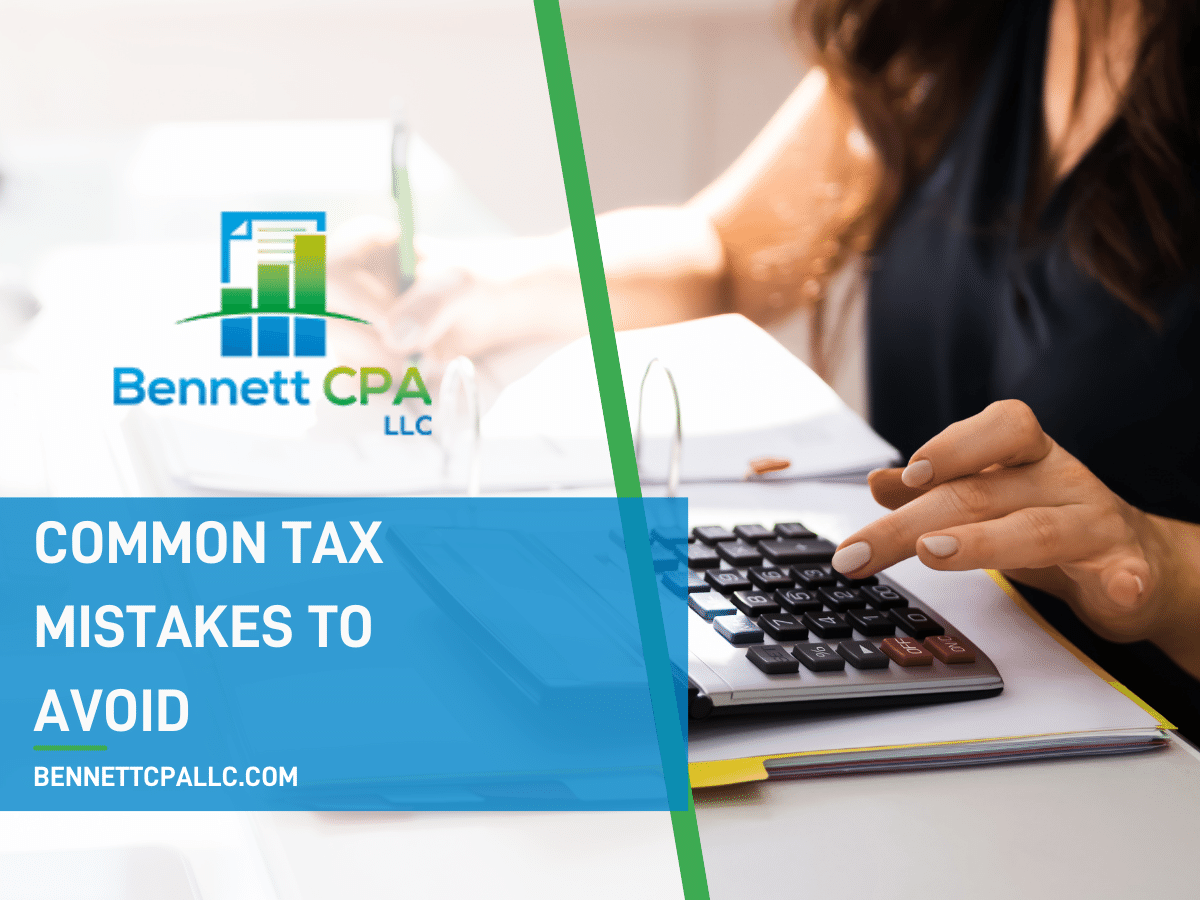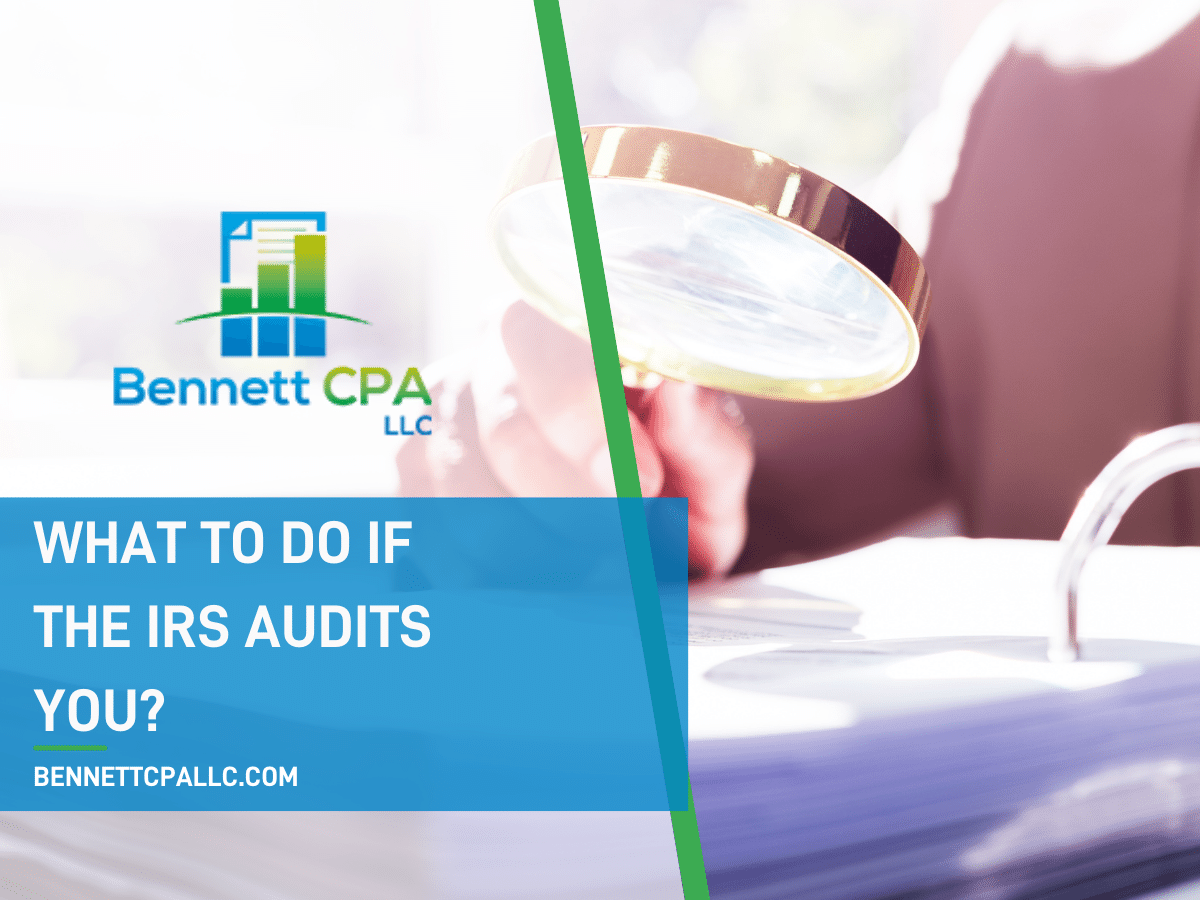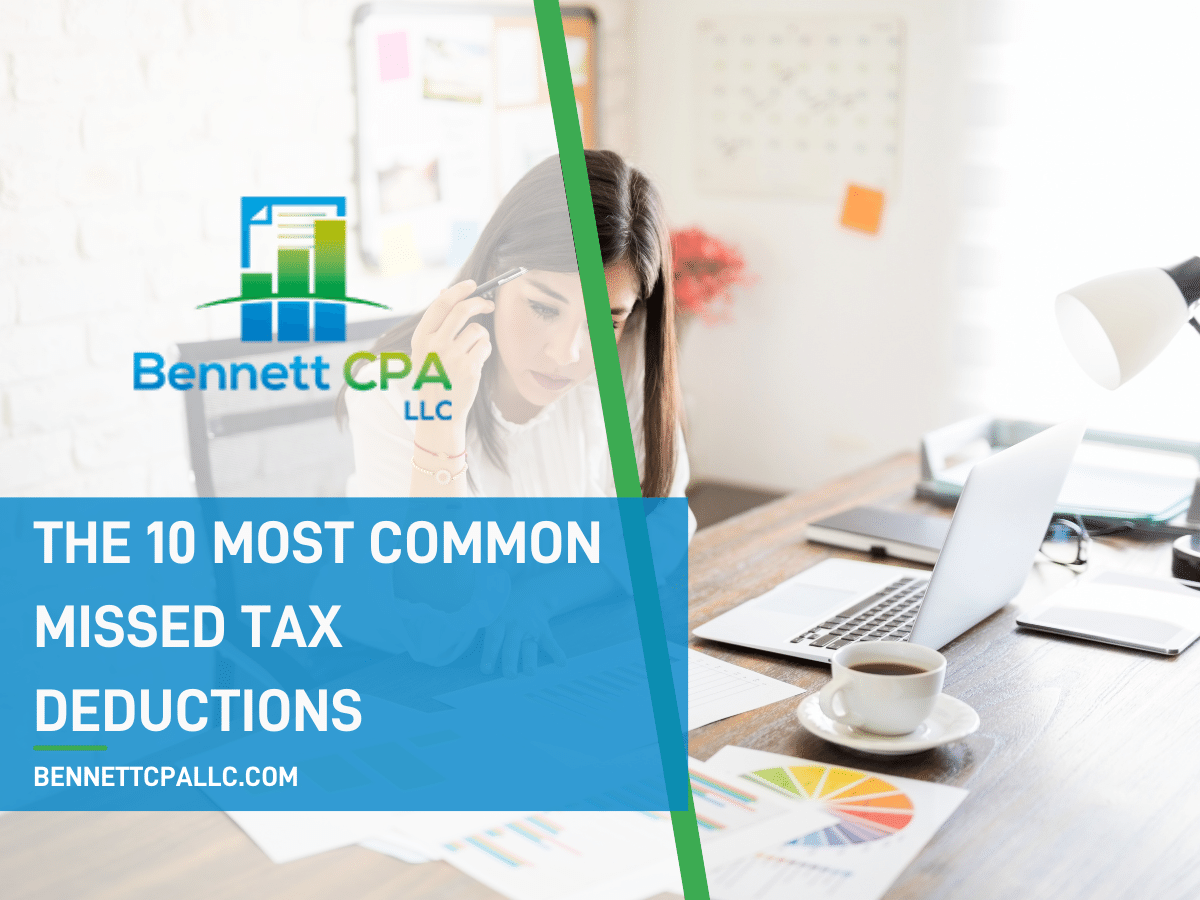Running a business is challenging. On top of running day-to-day operations, managing employees, keeping track of inventory, and communicating with customers, you also have to file business taxes. For any small business owner, this can be extremely overwhelming. Keeping up with your business’ tax records requires constant maintenance. By staying on top of your taxes, you have the best chance to simplify your tax filing and save money.
At Bennett CPA, Merrill Bennett has extensive experience simplifying business taxes for small and medium-sized businesses. As a certified tax professional in Colorado Springs, Bennett CPA offers tax preparation, planning, and consulting services aimed at reducing your business tax liability. Merrill Bennett can provide your small business with tax expertise so you can better understand the financials of your business.
Business taxes are complicated, but with these tax tips for small business owners, you will know how to reduce your tax liability to make filing taxes easy.
1. Keep adequate financial records.
Keeping careful track of your small business’ finances is the best way to prepare for filing taxes. When you keep updated financial records for your business, you have a better chance of filing your taxes correctly.
Additionally, keeping updated financial records means you can correctly record tax deductions to save money. Your small business can better monitor cash flow, payroll, customer accounts, and other business payments as well.
2. Pay estimated quarterly taxes.
For small business owners that will owe more than $1,000 at the end of the financial year, the IRS requires these businesses to pay estimated quarterly taxes. Estimated quarterly taxes pay taxes on any income that is not subject to withholding. This includes self-employed income, interest, and dividends.
Form 1040-ES is used to pay estimated taxes for 2022. The schedule to pay your estimated taxes by quarter is:
- April 18th, 2022
- June 15, 2022
- September 15, 2022
- January 17, 2023
3. Separate business and personal taxes.
One of the first things you should do when starting a small business is separate your business accounts from your personal accounts. Separating your accounts will help keep your business financials accurate and make filing your taxes easier.
Furthermore, mixing your business accounts with your personal accounts is never a good idea. If your small business gets audited, the IRS will review your business and personal statements to ensure that you are not reporting personal expenses for your business. As a small business owner, it is crucial to keep your work and personal expenses separate from one another.
4. Correctly report your business classification.
If you do not correctly classify your business, you could be overpaying your business taxes. There are significant tax differences between companies classified as sole proprietorships, limited liability companies, partnerships, C corporations, and S corporations.
It is essential to consider these tax differences when deciding how to classify your small business. It is crucial to consult with your accountant and lawyer before making this distinction.
5. Understand tax deductions.
When you claim business-related items as expenses on your taxes, you can lower your tax liability. Claiming business expenses will lower your business profitability, saving you money when you file business taxes.
The IRS states that businesses can write off business expenses that meet either ordinary or necessary criteria.
- Ordinary: Expenses commonly used by other businesses in your industry.
- Necessary: Expenses that assist you in growing your business.
Some examples of allowable expenses include:
- Payroll
- Utilities
- Travel
- Mileage
- Accounting services
- Shipping costs
- Equipment purchases
- Inventory
Your business expenses must be evaluated correctly. If you are unsure if an expense is allowable, check with your accountant for clarification.
6. Make charitable donations.
Another way your small business can reduce your tax liability is by making charitable donations. Charitable donations are an excellent way to support your local community while reducing your tax bill. When your small business donates to a 501(c)(3) organization, you can receive tax benefits and help support important causes. Contributions, such as cash, merchandise, and other assets, count as charitable donations.
7. Manage payroll.
Staying on top of your payroll expenses is essential to keep your business financials updated. Your small business must hire a reputable payroll company to keep track of expenses.
The IRS checks typically each quarter to make sure you have paid payroll taxes. When your small business works with a reputable payroll company, you can have peace of mind knowing your payroll taxes have been paid come tax season.
8. Claim all income reported to the IRS.
The IRS receives a copy of all 1099-MISC forms you receive for your small business. So, the IRS will check that the income you report on your taxes matches your financial records. It is never a good idea not to report income when filing your business tax returns.
Additionally, you need to report any income not on your 1099-MISC forms. Trying to avoid paying business taxes is not a good idea, and it can mean serious trouble for your business in the future.
9. Prepare for tax season.
Tax season is a stressful time. By keeping your financial records up to date and staying on top of tax deadlines, filing business taxes will be easier. You should begin to plan for tax season ahead of time. Plus, if you wait too long to prepare your business taxes, you may not be able to find an available tax preparer the closer it gets to tax season.
10. Hire a small business accountant.
A small business accountant will be able to help your business prepare for filing your business taxes. An experienced accountant will work with you throughout the year to ensure your financial documents are in order when it comes time to file.
An accountant who has experience working with small businesses will know how to file your taxes accurately, answer your questions, and minimize your tax liability to keep your tax bill low.
File Small Business Taxes With Bennett CPA
Keeping up with your small business taxes while running your business is a challenging feat. As a business owner, it is crucial to work with a certified personal accountant to have your business taxes prepared properly. A tax accountant will be able to help you lower your tax liability, keep on top of your financial documents, and file your taxes accurately.
At Bennett CPA, a tax professional located in Colorado Springs, Merrill Bennett helps small and medium-sized businesses with their taxes. Whether you have questions about your small business taxes or are looking to file your taxes, Bennett CPA is here to help! When using the business tax services from Bennett CPA, Bennett will lower your small business tax liability and file your business taxes correctly. If you are ready to file your small business taxes, contact Bennett CPA to get started!
